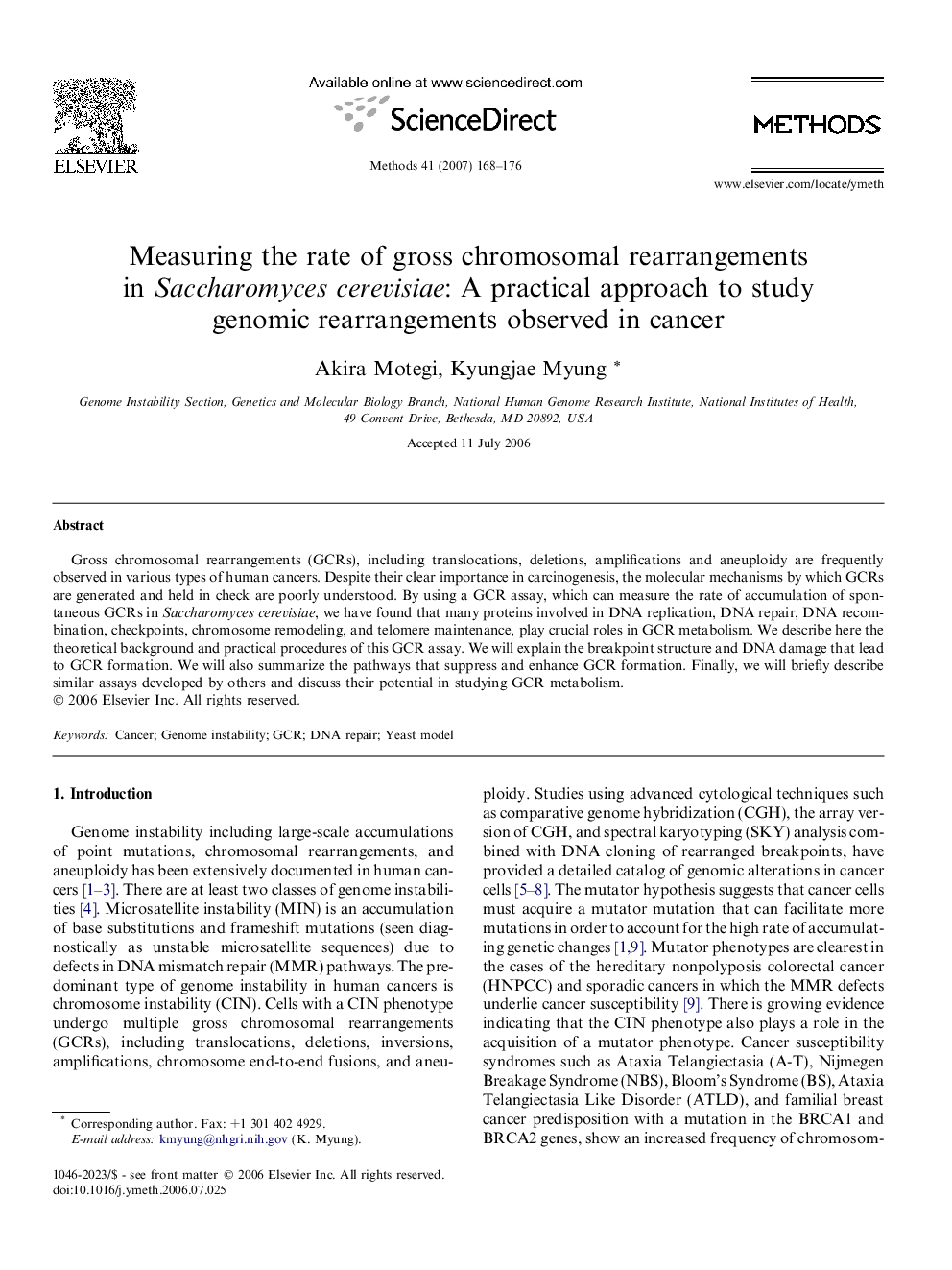| Article ID | Journal | Published Year | Pages | File Type |
|---|---|---|---|---|
| 1994401 | Methods | 2007 | 9 Pages |
Gross chromosomal rearrangements (GCRs), including translocations, deletions, amplifications and aneuploidy are frequently observed in various types of human cancers. Despite their clear importance in carcinogenesis, the molecular mechanisms by which GCRs are generated and held in check are poorly understood. By using a GCR assay, which can measure the rate of accumulation of spontaneous GCRs in Saccharomyces cerevisiae, we have found that many proteins involved in DNA replication, DNA repair, DNA recombination, checkpoints, chromosome remodeling, and telomere maintenance, play crucial roles in GCR metabolism. We describe here the theoretical background and practical procedures of this GCR assay. We will explain the breakpoint structure and DNA damage that lead to GCR formation. We will also summarize the pathways that suppress and enhance GCR formation. Finally, we will briefly describe similar assays developed by others and discuss their potential in studying GCR metabolism.
